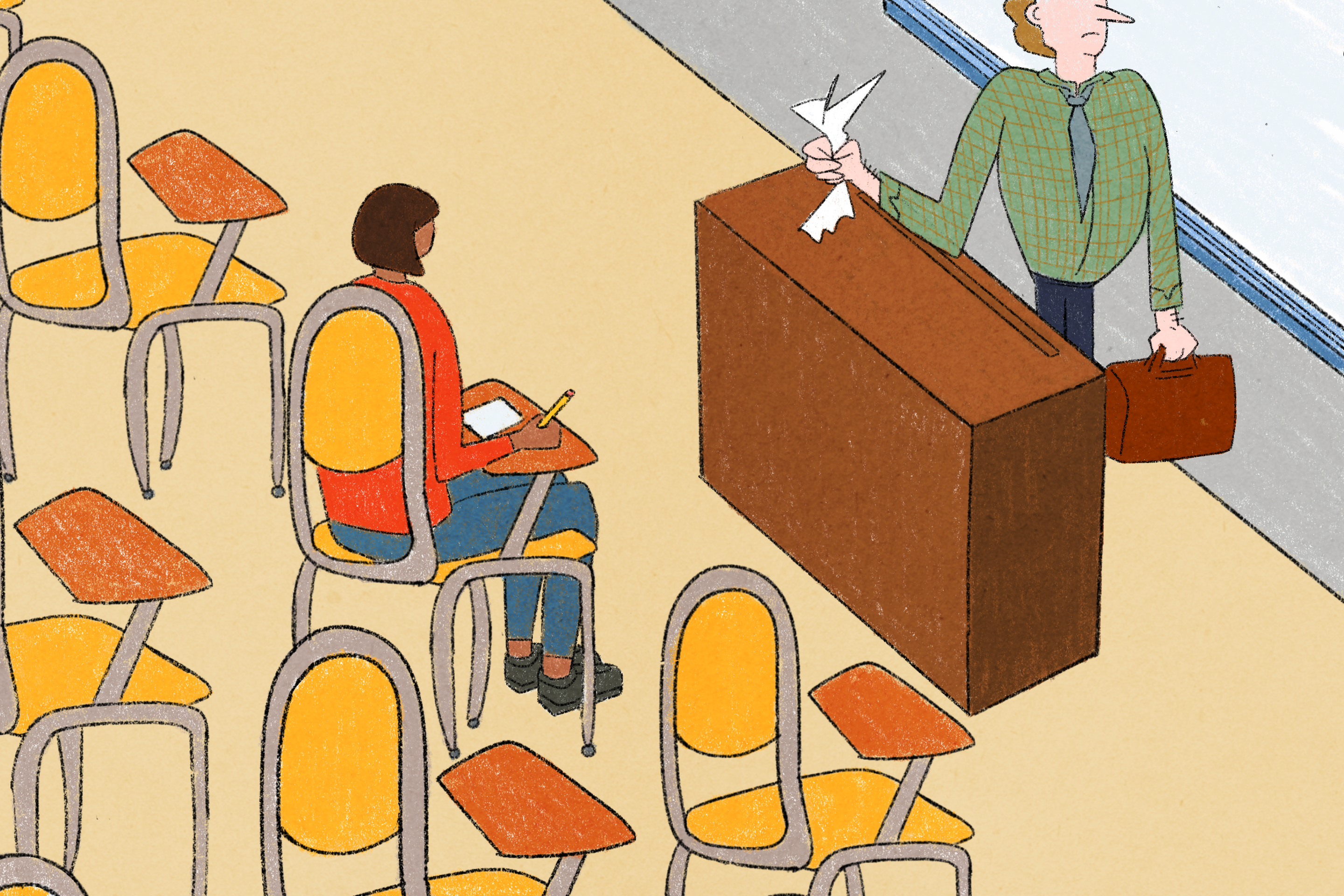A 2017 study from St. Olaf College observed that 86% of students experienced racial microaggressions in a sociology class. These same students were 26% more likely to be negatively impacted by such microaggressions and scored 14.6% lower than white students on an index analyzing positive relationships with professors.
Other studies report that a staggering 98.8% of students of color reported experiencing microaggressions during other college classes. Unfortunately, I became one of many in that 98.8% during my first graduate class—belittled and teased by my classmates and an old, straight, cisgender white professor. For students who have experienced similar disrespect, especially undergraduates, don’t let it discourage you.
As a meek 20 year-old in a room of advertising-marketing millennials, my heart palpitated at the thought of just raising my hand during class, let alone giving my first presentation. Graduate professors are notorious for their rude, condescending and sometimes “old-school” nature. For an advertising class, my radical gen-z brain dove face first into a ball pit of doom.
Our first essay in the class was a personal definition of advertising, which I described as an exclusive and exploitative business ruled by white elites. Though I am a public relations and advertising student, my aspirations surround a revolution in socially responsible advertising. My professor didn’t see the vision. Instead, he told me my essay was troublesome and invalidated my “definition” of advertising as an aggressive rant.
Our second assignment involved presenting the effectiveness of different advertising campaigns. Though a lingering uneasiness rumbled in my stomach, I lectured about Gwenyth Paltrow’s elitist Goopcompany and Old Navy’s obsession with light-skinned Black women and white husbands as the ideal family for summer sales. white-washed commercials and colorist advertisements. I held my breath as a slew of criticisms fired back at me. My professor asked me why everything had to be about race, told me I was over analyzing and misinterpreting the ads, prioritizing diversity over marketing success and worst of all,: he compared brown people to McDonald’s hamburgers.
“If McDonald’s can misrepresent their hamburgers, why does it matter if commercials misrepresent the population with white people?” he asked.
Jaw agape, I listened as other students asked me, “What’s wrong with having a white woman in one commercial? Black women can be rich too.”
Other students echoed a similar sentiment, telling me I was either overly ambitious in an industry where diversity was impossible to achieve or that I was in over my head. They all spoke to me as if I was the deluded undergraduate: the hyper-leftist naïve rebel who wasn’t ready to accept the tough world of capitalism. My professor then belittled me again in front of the class, asking me if I thought everyone else’s presentations were “diverse” enough. He then sarcastically disagreed with me when I said some of them were.
I left that class in a flurry of tears, a panic attack and the urge to shrivel up into a roly-poly on the train. I would never come to that class again, I promised myself. Graduate school was not for someone young and dumb such as myself, much less an idealistic woman of color in a white institution.
In a stroke of luck, one of my classmates who had never spoken a word to me sent the kindest email encouraging me not to stay silent, as she agreed with my perspective. She told me graduate students and professors weren’t ready to confront different opinions and confident undergraduates.
So, I came back to class with my head held high. Facing ridiculing microaggressions that invalidate women of color, paint us out to be aggressive and quixotic, is unfortunately common in higher education. It’s easy to let white men in power question our confidence and rationale, especially when the rest of the class is against us.
Confronting your professor is always an effective and direct form of self-advocacy, though it can be intimidating. For those who aren’t comfortable confronting your professor like me, never stop speaking and writing about your experiences in class. Persistence in itself is a form of confrontation. Unwavering and outlying perspectives challenge closed minds, make the class more effective and let everyone know that younger students of color are not air-heads.
I stayed firm in my stance during the rest of the class, continuing to vouch for my perspectives during class. At one point, my professor personally thanked me for my challenging opinions, confidence and “no-bullsh-t” attitude, demonstrating how tenacity and picking yourself back up can successfully leave a burning impression on the stagnation of “old-school” academia.
If you have a mad grad professor, make them even madder by being a strong voice, making your mark as a student of color and remembering that you, as a student, are resilient, confident and badass.

















